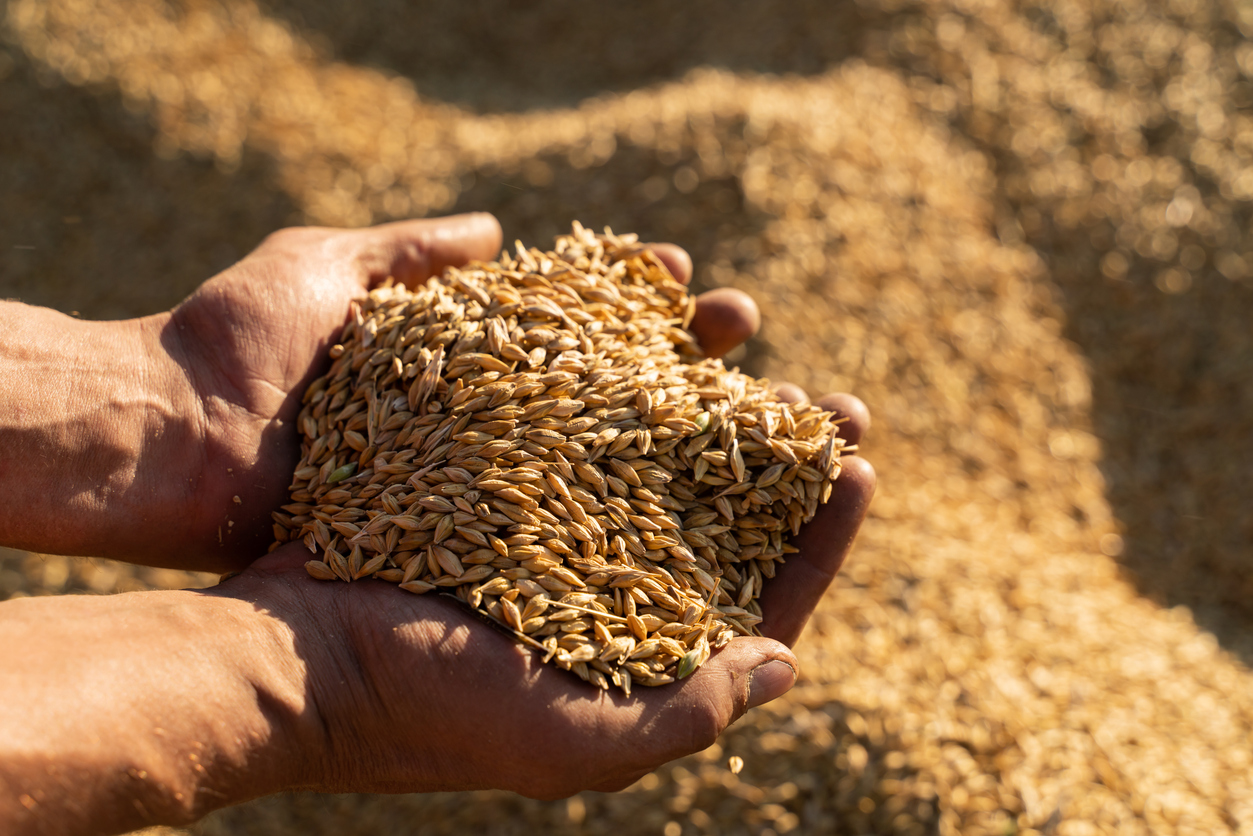
International Research Team Publishes Barley Pangenome
November 20, 2024| |
An international team of 80 scientists from 12 different countries led by the Leibniz Institute of Plant Genetics and Crop Plant Research (IPK) has reported a pangenome of barley, providing insights into the crop's disease resistance, architecture, starch mobilization, and the hairiness of a rudimentary appendage to the grain. The results were published in Nature.
The pangenome, which is a collection of annotated genome sequences of multiple individuals of a species was studied in barley. The barley pangenome comprises long-read sequence assemblies of 76 wild and domesticated genomes and short-read sequence data of 1,315 genotypes. The expanded catalog of sequence variation in the crop includes structurally complex loci that are rich in gene copy number variation and that control certain traits. To show the pangenome's utility, the researchers focused on a few loci - Mla, HvTB1, amy1_1, HvSRH1 - and the traits that they control, including disease resistance, plant architecture, starch mobilization, and the hairiness of a rudimentary appendage to the grain.
Barley is one of the top five crops in the world today, and its importance may increase in the future as the crop can tolerate harsh and marginal environments and adapt to dry climates. “More diverse crop pangenomes will help us understand how the counteracting forces of past domestication bottlenecks and newly arisen structural variants influence future crop improvement in changing climates”, says Prof. Dr. Nils Stein, head of IPK's Genebank department.
For more details, read the news release from IPK Leibniz Institute.
| |
You might also like:
- Scientists Crack the Code for Bigger Barley Grains
- Century-Old Experiment and New Research Identify Genes that Help Barley's Adaptability
- Multiplex Gene Editing Boosts Dietary Fiber Content in Barley
Biotech Updates is a weekly newsletter of ISAAA, a not-for-profit organization. It is distributed for free to over 22,000 subscribers worldwide to inform them about the key developments in biosciences, especially in biotechnology. Your support will help us in our mission to feed the world with knowledge. You can help by donating as little as $10.
-
See more articles:
-
Plant
- Scientists Identify Tomato Plants' Mechanism for Heat Tolerance
- International Research Team Publishes Barley Pangenome
- Scientists Produce Sweeter Tomatoes Without Yield Penalty
- EFSA GMO Panel Releases Scientific Opinion on Soy Leghemoglobin Produced from GM Komagataella phaffii
- Leading Breakthroughs: Gene Drives for a Sustainable Agriculture and Biodiversity Conservation
- Kenya Assures Public of Biosafety Guidelines
- Key Eggplant Gene Boosts Resistance to Bacterial Wilt
-
Environment
- FAO Analysis Identifies Opportunities, Gaps and Risks Related to Agrifood Climate Solutions
-
Read the latest: - Biotech Updates (January 28, 2026)
- Gene Editing Supplement (January 28, 2026)
- Gene Drive Supplement (February 22, 2023)
-
Subscribe to BU: - Share
- Tweet

